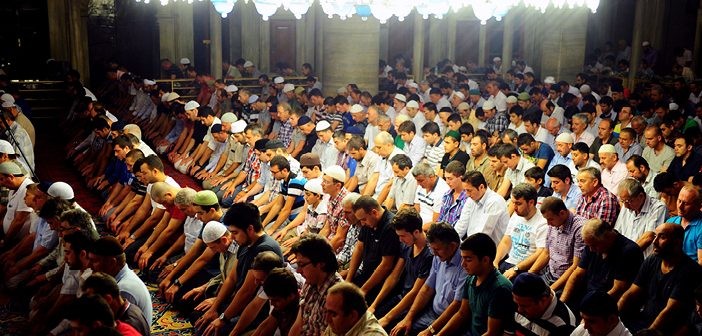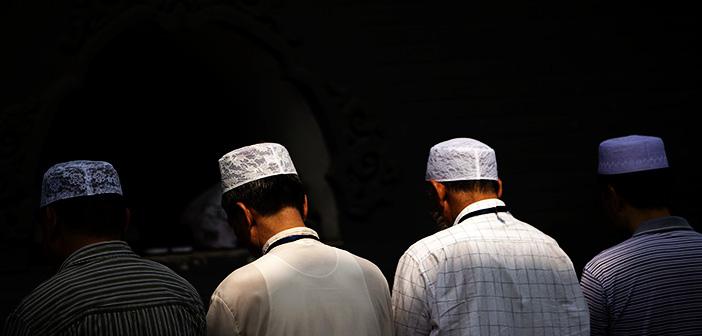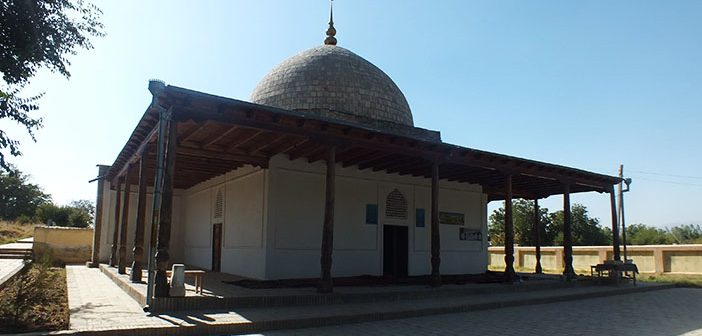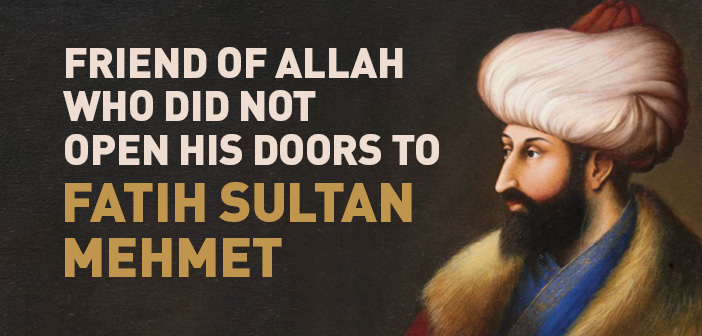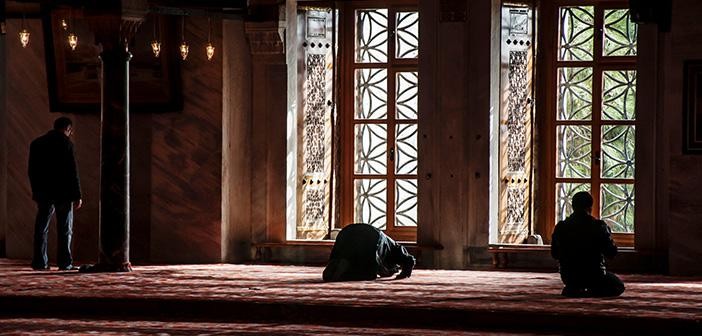
Let People Miss You While You Are Alive
The Lord of the worlds, Almighty Allah, has bestowed special favors upon His chosen messengers and confirmed them with various miracles. The confirmation of the Seal of the Prophets, the Noble Messenger (peace be upon him), was accompanied by unique miracles, and He addressed and honored him in ways distinct from all other prophets. In Surah Al-Inshirah, two divine favors are particularly highlighted: the opening and expansion of his chest (*sharh al-sadr*) and the perpetuation of his honor and glory until the Day of Judgment.
“Did We not expand your chest for you?” (Al-Inshirah, 1)
This divine favor is exclusive to the Master of the Prophets (peace be upon him) and, according to the explanations of the commentators, contains many profound meanings.
The term “sharh al-sadr” refers to “knowledge and obedience.” When the Master of the Prophets was sent as a messenger to both humans and jinn, dealing with them initially seemed difficult, and his chest felt constricted. However, Almighty Allah showed him such signs that he gained the strength and ability to overcome all difficulties. Every hardship he faced seemed small in his eyes. As a result, all worries and anxieties left his heart. He no longer paid attention to the harm inflicted by humans and jinn, and these troubles became as insignificant as a fly in his sight. From then on, he neither feared the threats of the disbelievers and polytheists nor coveted their status or wealth.
Sharh al-sadr (the opening of the chest) is about recognizing the insignificance of this world and the value of the Hereafter.
“Whomever Allah wills to guide, He opens their chest to Islam; and whomever He wills to leave astray, He makes their chest tight and constricted.” (Al-An’am, 125)
Through this opening of the chest, the heart of the Beloved of Allah (peace be upon him) became receptive to all important matters. He did not panic, suffer distress, or become confused. Whether in times of difficulty or ease, his heart remained at peace, and he focused solely on fulfilling his duties.
***
After mentioning sharh al-sadr, Allah addresses His most beloved Messenger: “Did We not elevate your remembrance?” (Al-Inshirah, 4). This means that his name and honor are tied to the remembrance of Allah. Whenever Allah is mentioned, His Messenger is also remembered.
The Noble Messenger (peace be upon him) said:
“Jibril came to me and said, ‘My Lord and your Lord says: Do you know how I have elevated your remembrance, name, and honor?’ I replied, ‘Allah knows best.’ He said, ‘When I am mentioned, you will be mentioned with Me.’”
This signifies the highest level of honor and glory. When Allah is mentioned, His Messenger is also mentioned. When “La ilaha illallah” is proclaimed, “Muhammadun Rasulullah” follows.
In the Qur’an, it is said: “Obey Allah and obey the Messenger.” (An-Nisa, 59) and “Whoever obeys the Messenger has indeed obeyed Allah.” (An-Nisa, 80). Being mentioned alongside Allah is the highest honor.
Prophets will be remembered with goodness among people until the Day of Judgment. Those who follow their path, embody their morals, and carry their legacy will also benefit from this blessing. They will be remembered with prayers of goodness for the beauty they leave behind. Indeed, being remembered with goodness after death is a prophetic supplication:
“Abraham said, ‘My Lord, grant me wisdom and join me with the righteous. And grant me a mention of honor among later generations. And make me among the inheritors of the Garden of Bliss.’” (Ash-Shu’ara, 84-85)
Allah accepted this supplication of His intimate friend (Khalil) and said: “And We left for him a good name among later generations.” (As-Saffat, 108)
Indeed, it is natural for a person to desire acceptance in their community, approval of their actions, and positive testimonies about them.
For a believer who believes in eternal life, every good testimony and prayer after death will bring happiness in the Hereafter. The Noble Messenger (peace be upon him) emphasized the great value of the final testimony of believers for a person on their eternal journey:
Anas (may Allah be pleased with him) narrated that while the Prophet (peace be upon him) and some companions were together, a funeral passed by them. Some of the companions spoke well of the deceased. The Prophet (peace be upon him) said:
“It is confirmed.” Then another funeral passed by, and the people spoke ill of the deceased. The Prophet (peace be upon him) again said:
“It is confirmed.” Umar (may Allah be pleased with him) asked, “What is confirmed, O Messenger of Allah?” The Prophet replied:
“You spoke well of the first deceased, so their entry into Paradise is confirmed. You spoke ill of the second, so their entry into Hell is confirmed. For you (believers) are Allah’s witnesses on earth.” (Bukhari, Jana’iz, 86)
A man once came to the Prophet (peace be upon him) and asked:
“O Messenger of Allah, how can I know when I have done good or evil?” The Prophet replied:
“When your neighbors say, ‘You have done well,’ know that you have indeed done good. And when they say, ‘You have done wrong,’ know that you have indeed done wrong.” (Ibn Majah, Zuhd, 25)
The verse “On that Day, man will be informed of what he sent ahead and what he left behind.” (Al-Qiyamah, 13) refers to both the good deeds a person performed in their lifetime and the good they left behind for others to benefit from after their death. Ibrahim an-Nakha’i explained that “what he sent ahead” refers to the good deeds a person did, while “what he left behind” refers to the beneficial knowledge they taught, which continues to be acted upon after their death.
For every action taken based on such knowledge, the person who taught it receives a reward equivalent to those who act upon it, without diminishing the reward of the doers. On the Day of Judgment, a person’s scales may be light, but a cloud-like reward will be placed on their scales, making them heavy. The person will say, “This is a deed I did not do.” They will be told, “This is the good you taught, and those who came after you acted upon it.” (Bahraiji, 15, 227)
The Master of the Prophets (peace be upon him), who was deeply concerned for his ummah, repeatedly warned about ensuring that no rights of others remained unsettled during one’s lifetime. In his first message upon migrating to Medina, he emphasized the importance of being mindful of the future. There are two essentials for being remembered with goodness after death: first, avoiding actions that lead to being remembered poorly, such as violating others’ rights, and second, leaving behind goodness that ensures one is remembered positively.
In our civilization, this goodness has been institutionalized as sadaqah jariyah (ongoing charity).
Abu Huraira (may Allah be pleased with him) narrated that the Prophet (peace be upon him) said:
“When a person dies, their deeds come to an end except for three: ongoing charity, beneficial knowledge, and a righteous child who prays for them.” (Muslim, Wasiyyah, 14)
The Prophet (peace be upon him) also said:
“No matter how much you hide, by Allah, when a person does something in secret, Allah manifests the nature of that deed upon them. If it is good, it will be good, and if it is evil, it will be evil. Even if one of you does a good deed behind seventy veils, Allah will bring it to light, and people will speak well of them. And if one of you does an evil deed behind seventy veils, Allah will expose it, and people will speak ill of them.” (Abu Nu’aym, Hilya, 5:36)
History never forgets tyrants whose evils persist even after their death, nor does it forget those who dedicated their lives to the good of humanity, leaving behind legacies that are admired and remembered with prayers of mercy.
While tyrants are remembered with curses, the righteous, scholars, and those who served goodness are remembered with prayers of mercy. Tyrants are cursed with “la’natullahi alayh,” while prophets are honored with salutations, companions with “radiyallahu anh,” and scholars and righteous people with “rahmatullahi alayh.”
Ali (may Allah be pleased with him) said:
“Live such a complete life that people miss you while you are alive and long for you after your death.”
Source: Sheikh Abdullah Sert



